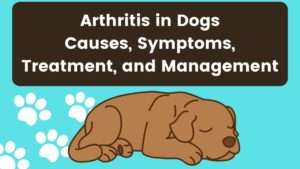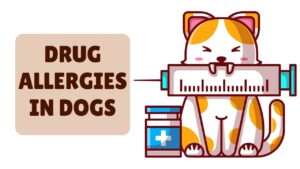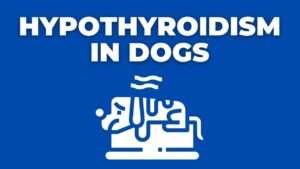Every dog owner wants their furry friend to live a long, healthy life filled with tail wags and playtime. However, just like humans, dogs can also be susceptible to various health issues, including heart disease. Understanding the signs, causes, treatment options, and prevention methods of heart disease in dogs is crucial for ensuring their well-being. In this complete guide, we’ll delve into everything you need to know about heart disease in dogs, from its types to its impact on your beloved pet’s life.
Contents Overview
Types of Heart Disease in Dogs
Heart disease in dogs encompasses several distinct types, each with its own characteristics, causes, and implications for your furry friend’s health. Understanding these different types is essential for recognizing symptoms early and seeking appropriate treatment. Let’s explore each type in detail:
- Mitral Valve Disease (MVD):
Mitral valve disease is the most common form of heart disease in dogs, particularly affecting small breeds and older dogs. It involves the degeneration of the mitral valve, which is responsible for regulating blood flow between the left atrium and left ventricle of the heart. As the valve deteriorates, it fails to close properly, leading to a backflow of blood (regurgitation) and an inefficient pumping action.
Key Points about MVD:
- Affected Breeds: Small breeds such as Cavalier King Charles Spaniels, Dachshunds, and Chihuahuas are predisposed to MVD.
- Symptoms: Common symptoms include coughing, difficulty breathing (especially during exercise or when lying down), lethargy, and intolerance to physical activity.
- Progression: MVD typically progresses slowly over time, with symptoms worsening as the disease advances.
- Treatment: Management may involve medications to reduce fluid buildup (diuretics), control blood pressure (ACE inhibitors), and improve heart function (pimobendan).
- Dilated Cardiomyopathy (DCM):
Dilated cardiomyopathy is characterized by the enlargement (dilation) of the heart chambers, particularly the left ventricle. This condition leads to a weakened pumping action and poor circulation of blood throughout the body. While DCM can affect dogs of any breed, it is most commonly seen in large and giant breeds.
Key Points about DCM:
- Affected Breeds: Large breeds such as Doberman Pinschers, Great Danes, and Boxers are predisposed to DCM, although it can occur in any breed.
- Symptoms: Signs of DCM may include weakness, lethargy, decreased appetite, coughing, rapid breathing, and fainting episodes.
- Diagnosis: Veterinary diagnosis typically involves a combination of physical examination, imaging tests (X-rays, echocardiography), and cardiac biomarker evaluation.
- Treatment: Management of DCM often includes medications to support heart function, such as pimobendan, diuretics, and ACE inhibitors. Dietary adjustments and lifestyle modifications may also be recommended.
- Congenital Heart Defects:
Congenital heart defects are structural abnormalities present at birth, affecting the heart’s chambers, valves, or major blood vessels. These defects can vary widely in severity and may impact blood flow, leading to symptoms ranging from mild to life-threatening.
Key Points about Congenital Heart Defects:
- Occurrence: Congenital heart defects can occur in any breed or mixed-breed dog and may involve abnormalities such as ventricular septal defects, patent ductus arteriosus, or pulmonary stenosis.
- Symptoms: Signs of congenital heart defects may include stunted growth, exercise intolerance, difficulty breathing, cyanosis (bluish tint to the gums or skin), and fainting episodes.
- Diagnosis: Diagnosis typically involves a thorough physical examination, imaging studies (such as echocardiography), and sometimes advanced imaging techniques like cardiac catheterization.
- Treatment: Treatment options depend on the specific defect and its severity. Some defects may require surgical correction, while others may be managed with medications and careful monitoring.
Causes of Heart Disease in Dogs
Heart disease in dogs can have various underlying causes, ranging from genetic predispositions to environmental factors. Understanding these causes is essential for implementing preventive measures and reducing the risk of heart issues in your canine companion. Let’s explore the primary factors contributing to heart disease in dogs:
- Genetics:
Genetics plays a significant role in the development of certain types of heart disease in dogs. Many breeds have a genetic predisposition to specific cardiac conditions, which can be passed down through generations. For example:
- Small breeds like Cavalier King Charles Spaniels are prone to mitral valve disease (MVD).
- Large breeds such as Doberman Pinschers and Boxers are predisposed to dilated cardiomyopathy (DCM).
- Certain congenital heart defects may also have a hereditary component.
- Age:
Age is a significant risk factor for heart disease in dogs. As dogs get older, their risk of developing cardiac issues increases. Mitral valve disease, for example, is more prevalent in older small breed dogs. Aging can lead to wear and tear on the heart valves, weakening of the heart muscle, and other age-related changes that contribute to cardiac dysfunction.
- Diet and Nutrition:
A poor diet and nutritional deficiencies can impact a dog’s heart health. Diets high in sodium, saturated fats, and processed ingredients can contribute to obesity, hypertension, and other risk factors for heart disease. Conversely, a balanced diet rich in essential nutrients, antioxidants, and omega-3 fatty acids can support cardiovascular health and reduce the risk of cardiac issues.
- Infections and Parasites:
Certain infections and parasites can directly affect the heart and contribute to the development of heart disease in dogs. Heartworm disease, caused by the parasitic worm Dirofilaria immitis, is a particularly significant concern. When transmitted through mosquito bites, heartworm larvae can migrate to the heart and pulmonary arteries, causing inflammation, damage, and potentially life-threatening complications if left untreated.
- Environmental Toxins:
Exposure to certain toxins and environmental pollutants can have detrimental effects on a dog’s heart health. Chemicals such as pesticides, heavy metals, and household cleaners can cause oxidative stress, inflammation, and damage to the heart muscle over time. Additionally, some medications, plants, and foods can be toxic to dogs and may affect cardiac function if ingested in sufficient quantities.
- Breed-Specific Factors:
Certain breeds are predisposed to specific types of heart disease due to their genetic makeup and physiological characteristics. For example:
- Cavalier King Charles Spaniels and other small breeds are prone to mitral valve disease.
- Doberman Pinschers and Boxers are at higher risk of developing dilated cardiomyopathy.
- Breeds with brachycephalic (short-nosed) facial structures, such as Bulldogs and Pugs, may experience respiratory issues that indirectly affect heart function.
Diagnosis and Treatment
Diagnosis and treatment of heart disease in dogs require a multifaceted approach that involves thorough clinical evaluation, diagnostic testing, and tailored management strategies. Early detection and intervention are crucial for improving outcomes and enhancing your dog’s quality of life. Let’s delve into the diagnostic and treatment modalities commonly employed by veterinary professionals:
Diagnosis:
- Physical Examination:
- Veterinarians begin by conducting a comprehensive physical examination to assess your dog’s overall health and detect any signs of heart disease. This may include listening for abnormal heart sounds (murmurs), assessing heart rate and rhythm, and evaluating respiratory function.
- Diagnostic Tests:
- X-rays (Radiography): X-rays provide valuable information about the size, shape, and position of the heart and lungs. They can help identify abnormalities such as heart enlargement, fluid accumulation, or pulmonary congestion.
- Electrocardiogram (ECG/EKG): An ECG measures the electrical activity of the heart and helps identify irregular heart rhythms (arrhythmias) and conduction abnormalities.
- Echocardiography (Ultrasound): Echocardiography is a non-invasive imaging technique that allows veterinarians to visualize the heart’s structure and function in real-time. It provides detailed information about chamber size, valve function, and blood flow patterns, aiding in the diagnosis of conditions such as mitral valve disease and dilated cardiomyopathy.
- Blood Tests: Blood tests may be performed to evaluate cardiac biomarkers, assess organ function, and screen for underlying conditions such as heartworm disease or metabolic imbalances.
- Specialized Procedures:
- In some cases, advanced diagnostic procedures such as cardiac catheterization or magnetic resonance imaging (MRI) may be recommended to obtain additional information about cardiac anatomy and function.
Treatment:
- Medications:
- Diuretics: Diuretic medications, such as furosemide, help reduce fluid buildup in the body, alleviating symptoms of congestive heart failure (CHF) such as coughing and difficulty breathing.
- ACE Inhibitors: Angiotensin-converting enzyme (ACE) inhibitors, such as enalapril or benazepril, help dilate blood vessels, lower blood pressure, and reduce the workload on the heart.
- Positive Inotropes: Drugs like pimobendan increase the strength of the heart’s contractions and improve cardiac output, making them beneficial for dogs with dilated cardiomyopathy.
- Antiarrhythmics: Antiarrhythmic medications may be prescribed to manage irregular heart rhythms and prevent potentially life-threatening arrhythmias.
- Lifestyle Modifications:
- Dietary Management: A balanced diet tailored to your dog’s specific needs can support cardiac health and weight management. Specialized cardiac diets may be recommended in some cases.
- Exercise Restriction: Limiting strenuous exercise and avoiding activities that could exacerbate symptoms can help reduce the strain on your dog’s heart.
- Weight Management: Maintaining a healthy weight is essential for dogs with heart disease, as obesity can worsen cardiac function and increase the risk of complications.
- Surgical Interventions:
- Valve Repair or Replacement: In select cases of mitral valve disease, surgical procedures may be performed to repair or replace the damaged valve, improving blood flow and reducing regurgitation.
- Pacemaker Implantation: Dogs with certain arrhythmias or conduction abnormalities may benefit from the placement of a pacemaker to regulate heart rhythm and improve cardiac function.
- Monitoring and Follow-up:
- Regular veterinary check-ups and monitoring are essential for assessing your dog’s response to treatment, adjusting medications as needed, and detecting any progression of the disease.
- Veterinarians may recommend periodic re-evaluation with diagnostic tests such as echocardiography to monitor changes in heart function over time.
Prevention Strategies
Prevention is key when it comes to heart disease in dogs, and implementing proactive strategies can help reduce the risk and promote cardiac health throughout your furry friend’s life. From lifestyle modifications to regular veterinary care, here are essential prevention strategies to safeguard your dog’s heart health:
- Regular Veterinary Check-ups:
- Schedule routine wellness exams with your veterinarian at least once or twice a year, depending on your dog’s age and health status.
- Veterinary check-ups allow for early detection of heart disease and other health issues, enabling prompt intervention and treatment.
- Heartworm Prevention:
- Administer monthly heartworm preventatives as recommended by your veterinarian.
- Heartworm disease, transmitted by infected mosquitoes, can cause serious damage to the heart and lungs if left untreated.
- Preventive medications are highly effective at protecting your dog against heartworm infection and are available in various forms, including oral tablets, topical treatments, and injections.
- Healthy Lifestyle Choices:
- Provide a balanced diet formulated for your dog’s age, size, and activity level.
- Avoid overfeeding and limit treats to prevent obesity, which can strain the heart and increase the risk of cardiovascular disease.
- Encourage regular exercise appropriate for your dog’s breed and physical condition. Aim for daily walks, playtime, and activities that promote cardiovascular fitness.
- Dental Care:
- Maintain good oral hygiene by brushing your dog’s teeth regularly and providing dental chews or treats.
- Poor dental health can lead to gum disease and bacterial infections that may contribute to heart disease and other systemic conditions.
- Weight Management:
- Monitor your dog’s weight and body condition regularly.
- Keep your dog at a healthy weight through proper diet and exercise to reduce the risk of obesity-related heart issues.
- Avoiding Toxins:
- Keep harmful substances such as chocolate, xylitol (found in sugar-free gum and candy), certain plants (e.g., lilies, sago palm), and human medications out of reach.
- Avoid exposing your dog to environmental toxins such as tobacco smoke, household cleaners, pesticides, and automotive fluids.
- Genetic Screening:
- If you’re considering adding a dog to your family, research breed-specific health concerns and choose a reputable breeder who screens for genetic predispositions to heart disease.
- Genetic testing can help identify dogs with an increased risk of inherited cardiac conditions, allowing breeders to make informed breeding decisions and reduce the prevalence of these diseases in future generations.
- Environmental Enrichment:
- Provide a stimulating and stress-free environment for your dog, as chronic stress can impact heart health.
- Enrichment activities such as interactive toys, puzzle feeders, and mental stimulation exercises can promote mental and emotional well-being.
- Regular Monitoring and Awareness:
- Be observant of changes in your dog’s behavior, appetite, energy level, and breathing patterns.
- Seek veterinary care promptly if you notice any signs of illness or distress, as early intervention can improve outcomes for dogs with heart disease.
Bottom Line
Heart disease is a significant health concern for dogs, but with early detection, proper management, and preventive measures, you can help your canine companion live a fulfilling and happy life. By understanding the different types of heart disease, their causes, diagnostic approaches, treatment options, and prevention strategies, you can become a proactive advocate for your dog’s heart health. Stay vigilant, prioritize regular veterinary care, and cherish every moment with your beloved pet. Together, we can ensure that every wagging tail continues to brighten our lives for years to come.



































+ There are no comments
Add yours